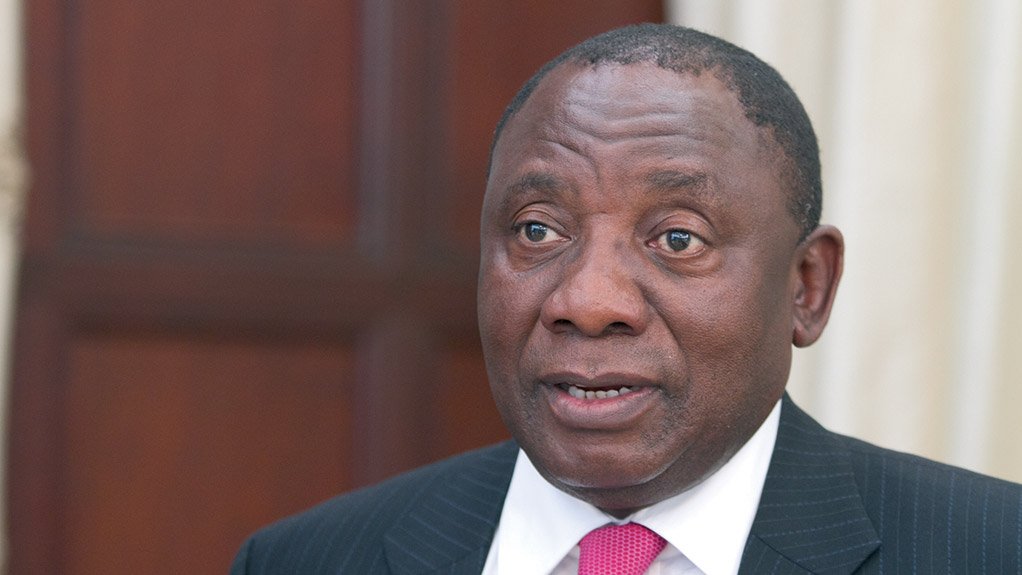South Africa’s economic transformation and inclusive growth will not result from a single intervention but rather a range of mutually supporting initiatives, Deputy President Cyril Ramaphosa said on Thursday, adding that in many cases this did not require new strategies, but rather better implementation of existing ones.
Speaking at the South African Reserve Bank (Sarb) leadership conference, he noted that the key challenges to economic growth in South Africa were domestic, with the economy having contracted by 0.6% in the first quarter of the year and barely having grown in the second quarter, as mining and manufacturing production fell sharply and growth in other sectors remained modest.
“Government is acutely aware of the challenges in our economy,” Ramaphosa said, pointing out that government sought to develop an economy that grew at no less than 5% a year.
He said, therefore, government would accelerate the implementation of the National Development Plan (NDP) to deal with both the immediate challenges and the long-term structural problems that constrained the country's development.
“We recognise that a major reason for the low level of investment is weak business confidence. This is driven, at least in part, by perceptions of policy uncertainty. There should be no grounds for such uncertainty,” Ramaphosa stated, highlighting that the current administration had entered office with a clear mandate to implement the NDP.
“The key elements of that plan are captured in the Medium-Term Strategic Framework (MTSF) and all institutions of the State have gone to work to achieve its objectives,” he explained.
Ramaphosa added that government would increase its engagement with business to ensure that business better understood the policies and programmes of this administration.
Meanwhile, the Deputy President also said government would continue to pursue a counter-cyclical fiscal policy where government saved during good times and spent to stabilise the economy during downturns.
“We seek a fiscal policy that gradually shifts spending from consumption towards investment [and] we see a greater role for development finance institutions in supporting investment in infrastructure, agriculture, small business development, black economic empowerment and industrialisation,” Ramaphosa said.
He stated that banks would be encouraged to broaden access to financial services to enable people to build up their assets and help small businesses emerge and grow.
Measures would also be introduced to address poor lending practices and excessive charges in some parts of the financial sector, and to make the sector more inclusive and accessible, Ramaphosa said.
“Government will continue to strengthen the regulation of financial institutions to ensure that savings are protected and customers are treated fairly. Postbank will play an expanded role in banking services.
“We look forward to a discussion with the Sarb on how best [to] achieve our objective of financial inclusion while maintaining a sound and sustainable financial sector free of abusive lending practices,” he commented.
Ramaphosa also noted that the MTSF called on government to take steps to improve the stability of the exchange rate at a competitive level, accompanied by measures to reduce the impact of currency volatility on the productive sectors.
“In particular, we commit government to raise the level of foreign exchange reserves in a prudent manner. This requires the active involvement of the Sarb and clear coordination between fiscal and monetary policy.
“This objective is consistent with our present policy of flexible inflation targeting and a floating exchange rate,” he said.
EMAIL THIS ARTICLE SAVE THIS ARTICLE
To subscribe email subscriptions@creamermedia.co.za or click here
To advertise email advertising@creamermedia.co.za or click here











